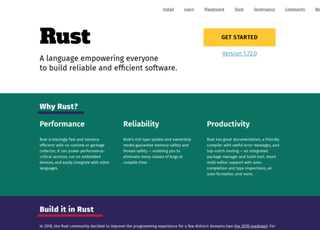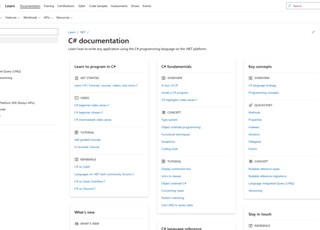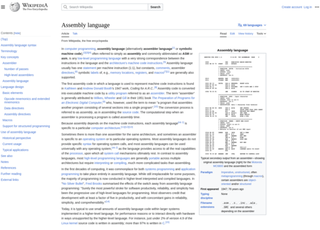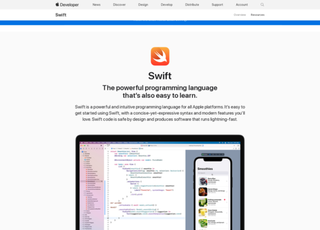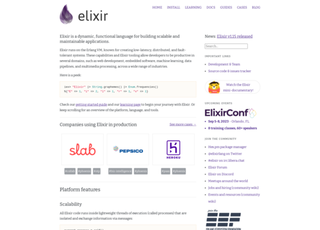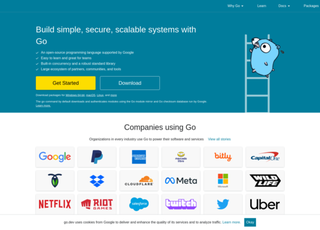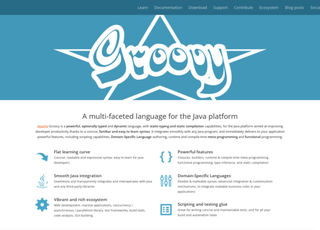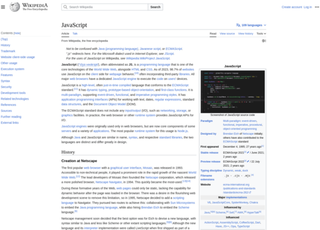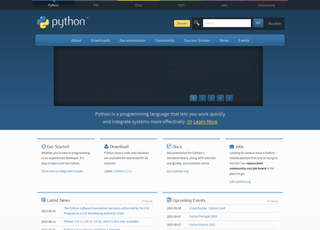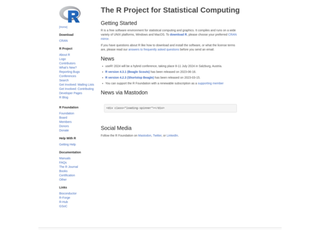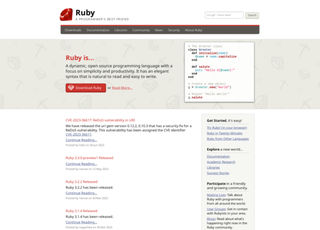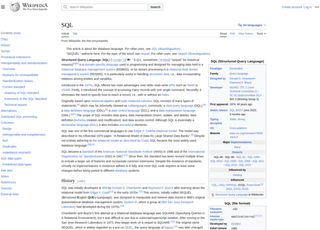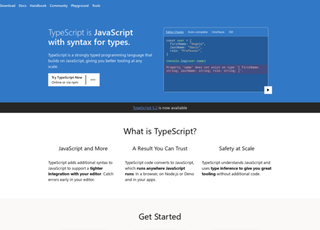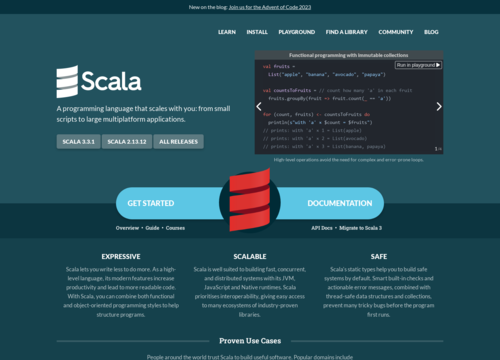Rust
Rust is a modern systems programming language that emphasizes safety, speed, and concurrency. It was initially developed by Mozilla and launched in 2010, gaining popularity for its ability to handle low-level tasks with the same level of control as C or C++, while introducing features that make it much safer to use. Rust is particularly known for its unique approach to memory management, offering powerful abstractions without a runtime or garbage collector.
Key Features of Rust
Memory Safety without a Garbage Collector
One of Rust’s most acclaimed features is its memory management model. Unlike languages such as Java or Go, which rely on garbage collection to manage memory, Rust uses a system of ownership and borrowing. This allows for fine-grained control over memory allocation and deallocation, ensuring that the program uses memory efficiently without the risk of common bugs such as null pointer dereferencing or dangling pointers.
Zero-cost Abstractions
Rust strives to provide high-level abstractions that do not impose a performance penalty. This means that you can write code that is both safe and efficient without sacrificing speed. For example, Rust’s smart pointers, iterators, and pattern matching are optimized to have very little runtime overhead.
Concurrency and Thread Safety
Rust is designed with concurrency in mind. It enforces thread safety at compile times, preventing common concurrency problems such as data races. By using the ownership system and the Send and Sync traits, Rust ensures that data are only shared across threads in a safe manner. This makes it much easier to write concurrent programs than languages such as C++.
Safe and Expressive Syntax
The language syntax is designed to be expressive yet simple to use. While it is more rigorous than higher-level languages are, the syntax is relatively clean and readable, making it approachable for developers transitioning from languages such as Python, JavaScript, or C++. Rust features such as pattern matching, enums, and algebraic data types add expressive power while also providing better compile-time checks for logic errors.
Strong Typing System
A rust-type system is one of its core strengths. The compiler enforces strict type checking, which eliminates many potential bugs at compile time. The system also includes type inference, meaning that you do not have to explicitly declare types in every situation (although you can when you want more control). This balance between flexibility and control makes the rust code robust and maintainable.
Borrowing and Lifetimes
A central concept in rust is borrowing, which controls how references to memory are handled. Borrowing allows you to pass references to data without transferring ownership, enabling more flexible use of memory without risking data corruption. Rust also has lifetimes, which are used to ensure that references are valid for as long as they are being used. This is enforced at compile-time, catching potential bugs before they can affect a running program.
Crate Ecosystem and Tooling
Rust has an excellent package management system called Cargo. It simplifies dependency management, compilation, and project setup, making it easy to work with third-party libraries, which are called "crates" in Rust. The rust ecosystem is growing rapidly, and libraries are available for a wide range of domains, from web development to embedded systems programming. Rust’s standard library is also designed to be minimal but powerful, promoting the use of third-party crates.
Error Handling
Rust takes error handling very seriously. Instead of exceptions, rust uses a combination of the result and option types to handle recoverable and unrecoverable errors. This forces developers to consider error handling explicitly, leading to more reliable and maintainable code. Unrecoverable errors, such as panic conditions, are also well defined, making it clear when and where something went wrong.
Why Use Rust?
Safety and Reliability
Rust prevents a whole class of bugs that plague systems programming languages such as C and C++, such as buffer overflows, dangling pointers, and data races. These safety guarantees make Rust highly reliable for building secure and stable software systems.
Performance
Rust is a compiled language that produces machine code directly, which allows it to achieve performance similar to that of C or C++. Owing to its zero-cost abstractions and minimal runtime overhead, rust is an excellent choice for performance-critical applications, such as game engines, operating systems, and web servers.
Concurrency by Design
In an era where multicore processors are the norm, writing safe and efficient concurrent code is increasingly important. Rust design inherently prevents data races and other concurrency problems, making it one of the best languages for multithreaded programming.
Developer Experience
Despite its focus on systems programming, rust has a strong focus on developer experience. The rust compiler provides clear and helpful error messages, which significantly reduces the learning curve. Rust also has a growing, friendly community, with extensive documentation and resources for new users.
Versatility
While rust is seen mainly as a systems programming language, it is also well suited for a variety of other domains. Developers use rust for embedded programming, web assembly (WASM), server-side applications, and even game development. Its flexibility and performance make it adaptable to different problem spaces.
Use cases of rust
Systems Programming
Rust is designed to replace traditional systems programming languages such as C and C++. It is used for writing low-level code for kernels, drivers, and other parts of an operating system.
Web Development
Rust has frameworks such as Rocket and Actix, which are gaining popularity for building web servers. Its performance and safety make it an attractive alternative to languages such as Node.js or Python in web backend development.
Game development
Game engines require maximum performance, which rust can provide. Some indie game developers choose rust for game development because of its memory safety and concurrency features.
Embedded Systems
Rust is also a strong choice for embedded system development. Its control over memory and low runtime footprint make it ideal for resource-constrained environments such as microcontrollers.
WebAssembly (WASM)
Rust can be compiled into WebAssembly, making it a popular choice for running high-performance code in the browser. This allows developers to write rust code that can execute in a web environment, improving performance over JavaScript in certain cases.
Challenges of Rust
Steep Learning Curve
Rust’s ownership model, borrowing, and lifetimes are new concepts for many programmers. While these features are part of what makes Rust safe and powerful, they can make the language harder to learn, especially for beginners coming from higher-level languages.
Compile Times
Rust safety checks and optimizations mean that compile times can be longer than those of languages such as C or Go. While rust is making improvements in this area, it can still be a downside for developers used to quickly compile cycles.
Limited Ecosystem (Relative to Mature Languages)
While the rust ecosystem is growing rapidly, it is still smaller than more established languages such as Java or Python. This can sometimes make it difficult to find libraries or frameworks for certain specialized tasks.




















